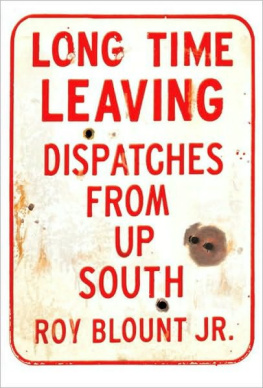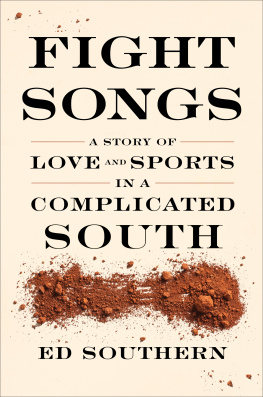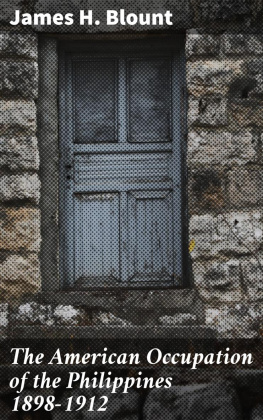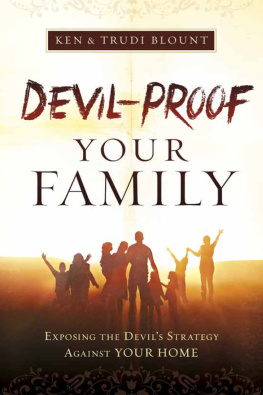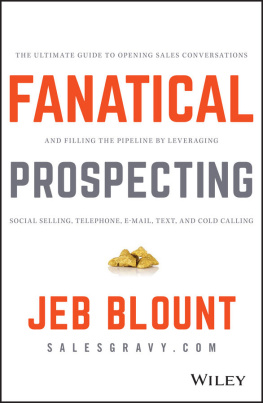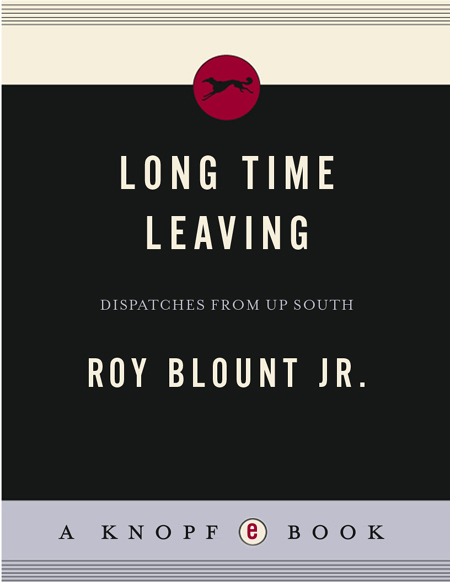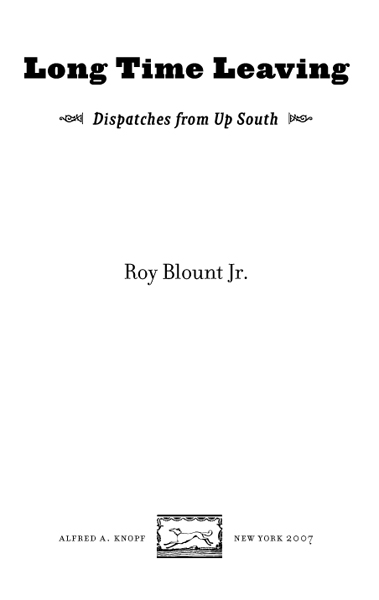All references to my lady friend, sweet pea, inamorata of long standing, and so on are hereby superseded. We got married, at sunset on Sunset Beach in Tarpon Springs, Florida, an old Greek sponge-fishing town.
Contents
I.
II.
III.
IV.
V.
VI.
VII.
Bringing in the Sheaves
This was written before the midterm elections of 2006, in which, as we now know, Americaeven as far South as Virginiabegan to take my advice. Much remains to be seen.
D own South recently I read a letter to the editor that sought a middle ground on glossolalia. Apparently controversy has been high among Southern Baptists as to whether speaking in tongues should be embraced doctrinally. The writer began as follows:
I have never, as far as I am aware, been inspired to speak in tongues myself, but
As far as I am aware.
Aw, man, I miss that stuff.
Best I recollect, I have not personally been swallowed by a whale, as such, but
I moved to the Northeast thirty-eight years ago. By now, you'd think I would have left the South. But I keep needing to get back down there. As long as I can get back out again.
In October 2001, an American flag was stolen in Massachusetts and another one in North Carolina. I know of the first from a photograph in the Berkshire Eagle, of Pittsfield, Massachusetts, in which a reproachful-looking elderly couple are holding up a hand-lettered cardboard sign that says PLEASE RETURN OUR FLAG. SHAME ON YOU. I know of the second from a photograph in the Independent Weekly of Chapel Hill, North Carolina, in which an angry-looking middle-aged man is standing beneath professional plastic-letter signage, bolted onto the front of his house and floodlit, that says, I HOPE THE SORRY PIECE OF SHIT WHO STOLE MY U.S. FLAG DISPLAYS IT WITH PRIDE .
The thinking is clearer in the Northern sign. There is more going on in the Southern one. And it's more flagrant. Her lyricism can be flagrant, writes Margo Jefferson (about Carson McCullers), in The New York Times. But what Southern writer isn't flagrant about something?
Generalizations about the South, unless I am making them, usually put me off, but that one is mannerly enough, for one thing, to be couched as a question. And I don't know where Margo Jefferson grew up, but I know she is African American and a Jefferson, therefore at least somewhat Southern rooted, therefore not a writer whom I suspect of retaining, autonomically, as a chicken does a piece of gizzard grit, this calcified given: My cultural hegemony may be pretty well played out [or on the verge of succumbing to barbarism], but at least I'm not Southern.
Anyway, I like flagrant. As we used to say in the army, with regard to the First Infantry Division, vaunting itself as the Big Red One: if you're going to be one, you might as well be a big red one. I am an migr from a region that tried, a century and a half ago, to emigrate from the United States en masse. It may be that you can't love America (or Cuba, say, or Nature or the Promised Land) flagrantly until you and it have split.
Then, too, part of being an American is feeling like the child of a broken home. There is always some kind of schism going on, with an overlap that is rich and strange. For instance, you'd think hog wild and bird-watching would have nothing in common, but the ivory-billed woodpecker was sighted in a state that roots for the Razorbacks.
I root for the overlap. I keep trying to tell people in the Northeast that you can't be part of the solution until you accept that you're part of the problem. Thinking right is not enough. Different people hold different truths to be self-evident.
Speaking of evidence, right after 9/11, when citizens were asking what they could do to help, President Bush came up with this response:
People need to be logical. If you find a person that you've never seen before getting into a crop duster that doesn't belong to you, report it.
Hello, FBI? I was driving down Route 183 here and saw somebody I never saw in my life. I've seen a lot of people in my time, but not this one. And sure enough he was getting into a crop-duster planeand it wasn't mine!
The difference between the president and the would-be glossolalia mediator is that the latter's suggestions just might work. Between the president and the North Carolina flag man, it's the difference between someone who has got where he is by not quite knowing what he means, and someone who has such a tight grip on what he means that it squooshes out in more than one direction.
I prefer the latter effect. It achieves a certain emotional balance. Me, I hover between Southern and Northern. Maybe I have a yen to prolong the transition, like the old boy who bought his wife five yards of material for her to make a new nightgown.
This is going to make an awful long nightgown, said the storekeeper.
Yep, said the old boy.
I mean, said the storekeeper, real long.
Well, the old boy confided, I just so enjoy pulling it up.
At any rate, I have sought to turn my regional ambivalence into a philosophical position (or dance). Trying to get Aunt Dixie and Uncle Sam on speaking terms.
When I was in high school, back in Decatur, Georgia, in the fifties, a select group of the girls would take a field trip every year to New York City. And the issue arose: If a boy tried to talk to a girl in that foreign city whose standards of decency were heaven knew how warped and minimal, how could a girl decide whether she should talk to him? How, in short, could she tell that he was nice?
This field trip was always chaperoned by the teacher of home economics. She was demure, elderly (as she seemed to me then), diminutive: a little old lady. Mrs. Clive Folger. And the rule for the girls was, when you meet a boy, tell him you want him to meet Miz Folger.
If he doesn't want to meet Miz Folger, he is not a nice boy.
One day my girlfriend told me, casually, about this rule. And I don't want to overdramatize thislet's just say my blood ran cold. Because I was young, full of beans, and planning to become a rather worldly writer. And yet the rule rang true.

